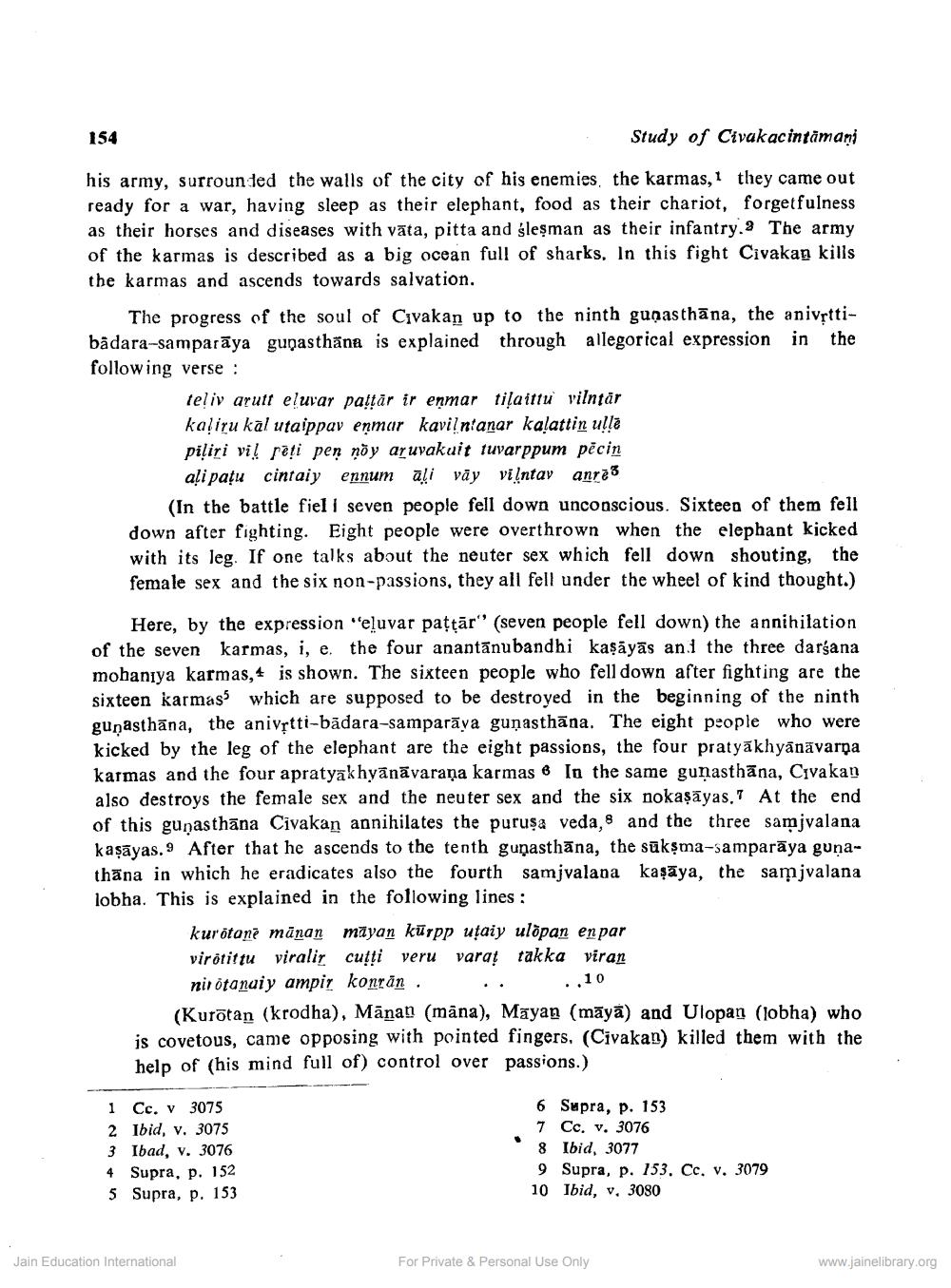________________
154
Study of Civakacintamani
his army, surrounded the walls of the city of his enemies, the karmas, they came out ready for a war, having sleep as their elephant, food as their chariot, forgetfulness as their horses and diseases with vāta, pitta and śleşman as their infantry 2 The army of the karmas is described as a big ocean full of sharks. In this fight Civakan kills the karmas and ascends towards salvation.
The progress of the soul of Civakan up to the ninth gunasthāna, the anivettibadara-samparāya gunasthana is explained through allegorical expression in the following verse :
teliv arutt eluvar pattár ir enmar tiļaittu vilntar kaliru kāl utaippav enmar kaviln'anar kalattin ulle piļiri vil rēți pen noy ar uvakuit tuvarppum pēcin
aļi pațu cintaiyennum ali vāy viļntav anra3
(In the battle fiel i seven people fell down unconscious. Sixteen of them fell down after fighting. Eight people were overthrown when the elephant kicked with its leg. If one talks about the neuter sex which fell down shouting, the female sex and the six non-passions, they all fell under the wheel of kind thought.)
Here, by the expression "eluvar pattār" (seven people fell down) the annihilation of the seven karmas, i, e. the four anantānubandhi kaşāyās anii the three darsana mohaniya karmas, 4 is shown. The sixteen people who fell down after fighting are the sixteen karmas which are supposed to be destroyed in the beginning of the ninth gunasthāna, the anivștti-bādara-samparāva guṇasthāna. The eight people who were kicked by the leg of the elephant are the eight passions, the four pratyākhyānāvarpa karmas and the four apratyakhyānāvaraṇa karmas e In the same guņasthāna, Civakan also destroys the female sex and the neuter sex and the six nokaṣāyas. At the end of this gunasthāna Civakan annihilates the purusa veda, and the three samjvalana kaşāyas. 9 After that he ascends to the tenth guṇasthāna, the sūksma-samparāya gunathāna in which he eradicates also the fourth samjvalana kaşāya, the samjvalana lobha. This is explained in the following lines :
kur tanë mūnan māyan kūrpp utaiy ulopan en par virätittu viralir cutti veru varat takka viran nirotanoiy ampir konrān. .. ..10
(Kurotan (krodha), Mānan (māna), Mayap (māyā) and Ulopan (lobha) who is covetous, came opposing with pointed fingers. (Civakan) killed them with the help of (his mind full of) control over passions.)
1 Cc. v 3075 2 Ibid, v. 3075 3 Ibad, v. 3076 4 Supra, p. 152 5 Supra, p. 153
6 Supra, p. 153 7 Cc. v. 3076 8 Ibid, 3077 9 Supra, p. 153. Cc, v. 3079 10 Ibid, v. 3080
Jain Education International
For Private & Personal Use Only
www.jainelibrary.org




